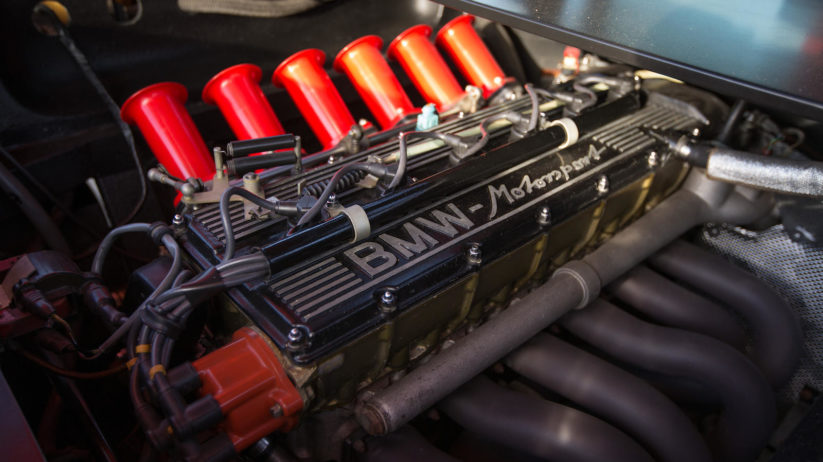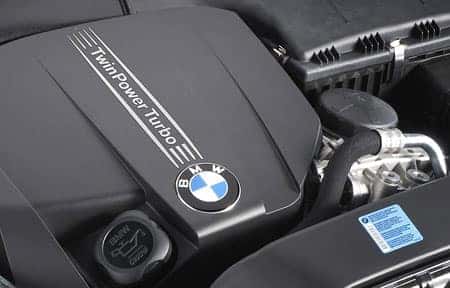Top 5 BMW Engine Technologies Revolutionizing the Automotive Market
Top 5 BMW Engine Technologies Revolutionizing the Automotive Market
Blog Article
Introducing the Intricacies of Next-Generation Power Units: a Deep Dive Into Advanced Engine Technologies and layouts
In the world of vehicle engineering, the relentless pursuit of efficiency, sustainability, and efficiency has driven the evolution of power units to extraordinary heights. As we depend on the precipice of a brand-new age in transportation, the complexities of next-generation engine layouts bid us to check out the sophisticated modern technologies and technologies that promise to redefine the driving experience. From innovative materials that push the limits of longevity and weight decrease to innovative turbocharging and supercharging systems that elevate power output to new degrees, each component of these power devices holds an essential to opening the future of automotive engineering. Digging much deeper right into the worlds of exhaust control, intelligent engine monitoring systems, and the horizon of power unit growth, we find ourselves on the cusp of a transformation that promises to improve the landscape of mobility as we understand it.
Development of Engine Materials

The change in the direction of advanced engine materials has likewise made it possible for designers to create engines with greater power results while keeping fuel efficiency criteria. For example, using lightweight products minimizes the general weight of the engine, leading to boosted gas economic situation and reduced exhausts. Furthermore, advancements in products modern technology have permitted for far better thermal monitoring within engines, causing raised dependability and durability.
Turbocharging and Supercharging Technologies
Exactly How do Turbocharging and Supercharging Technologies change engine efficiency and effectiveness in contemporary automobiles? Turbocharging and supercharging are modern technologies that considerably improve engine efficiency by increasing the quantity of air intake into the combustion chamber. Turbocharging achieves this by making use of a generator driven by exhaust gases to pressurize the consumption air, while supercharging uses a belt- or chain-driven compressor to attain the exact same impact.
These technologies make it possible for smaller sized, a lot more fuel-efficient engines to create power comparable to bigger ones, understood as downsizing. By compeling more air into the cylinders, turbocharging and supercharging improve combustion efficiency, resulting in increased horse power and torque output without a significant increase in engine size. This results in far better velocity, pulling ability, and total driving performance.
Moreover, turbo charging and turbocharging add to improved gas effectiveness by permitting the usage of smaller engines that eat less gas under normal driving problems - bmw engine. This combination of improved efficiency and performance has made turbocharging and turbo charging integral components of lots of contemporary engine styles
Exhaust Control and Environmental Effect
With raising international problems relating to air high quality and ecological sustainability, the execution of emission control technologies in automobiles plays a vital role in reducing dangerous contaminants released into the environment. Modern lorries are outfitted with sophisticated emission control systems that aid lessen the ecological impact of auto operations. Catalytic converters, for example, are created to transform poisonous gases such as carbon monoxide gas, nitrogen oxides, and hydrocarbons right into much less harmful materials like carbon dioxide and water vapor.
In addition, improvements in engine technology, such as the integration of exhaust gas recirculation systems and careful catalytic reduction, have considerably added to reducing emissions. Find Out More These modern technologies work in tandem to enhance combustion performance and decrease the launch of dangerous pollutants into the air. Additionally, the advancement of crossbreed and electrical lorries stands for a crucial action towards decreasing the general environmental footprint of the transportation sector.
Intelligent Engine Monitoring Equipment

Moreover, these systems make it possible for automobiles to meet rigorous article source discharges standards without compromising efficiency, giving a more ecologically pleasant driving experience. The integration of man-made intelligence and artificial intelligence capabilities in engine administration systems continues to press the borders of what is possible, causing more enhancements in efficiency, integrity, and general automobile efficiency. bmw engine. As automobile technology developments, intelligent engine administration systems will play an essential function fit the future of transport in the direction of a more sustainable and effective instructions
Future Trends in Power Unit Advancement
As intelligent engine administration systems pave the method for enhanced control and optimization in modern vehicles, future fads in power unit advancement are poised to redefine the landscape of automobile propulsion technologies. These different power sources offer enhanced efficiency and performance while aligning with rigid ecological regulations.
An additional substantial fad is the combination of sophisticated products and producing strategies. Light-weight products such as carbon fiber and aluminum are being used to reduce overall vehicle weight, improving fuel performance and efficiency. Additionally, improvements in 3D printing and additive production are allowing the production of complex engine elements with higher accuracy and durability.
Additionally, expert system and device knowing are playing a crucial function in maximizing power unit performance. These modern technologies permit for real-time surveillance and flexible control, causing a lot more reliable and reliable power delivery. In general, future fads in power unit advancement are geared towards effectiveness, sustainability, and performance, driving the vehicle market towards a new era of propulsion modern technologies.

Conclusion
In final thought, the developments in engine products, turbocharging, exhaust control, and smart monitoring systems have actually led the way for imp source next-generation power units. The elaborate layouts and advancements in modern engines display the ongoing advancement of vehicle technology.
Discovering the modern improvements in engine materials has been essential in boosting the performance and effectiveness of modern engines. Over the years, the evolution of engine products has actually played a vital duty in pressing the borders of what engines can achieve.The change in the direction of progressed engine materials has likewise made it possible for designers to make engines with greater power outputs while keeping gas performance requirements.The execution of smart engine monitoring systems in modern-day vehicles has actually changed the means engines are controlled and enhanced for efficiency and performance. By collecting information in real-time and evaluating it with advanced formulas, smart engine administration systems can adapt to driving designs, ecological factors, and engine wellness to maximize power output while reducing gas intake and discharges.
Report this page